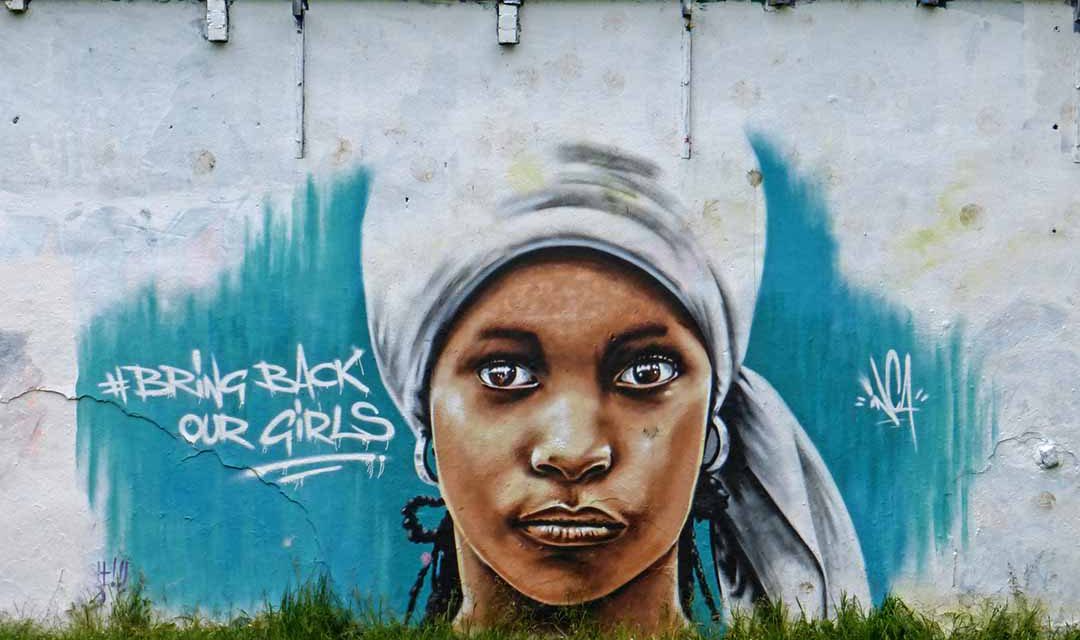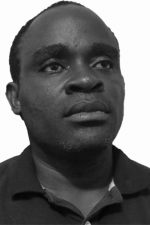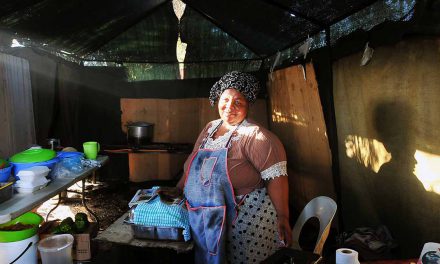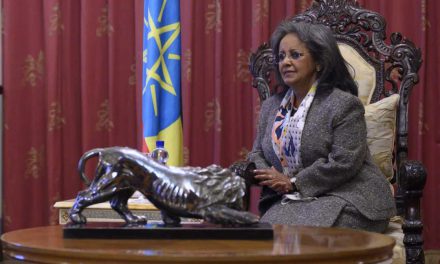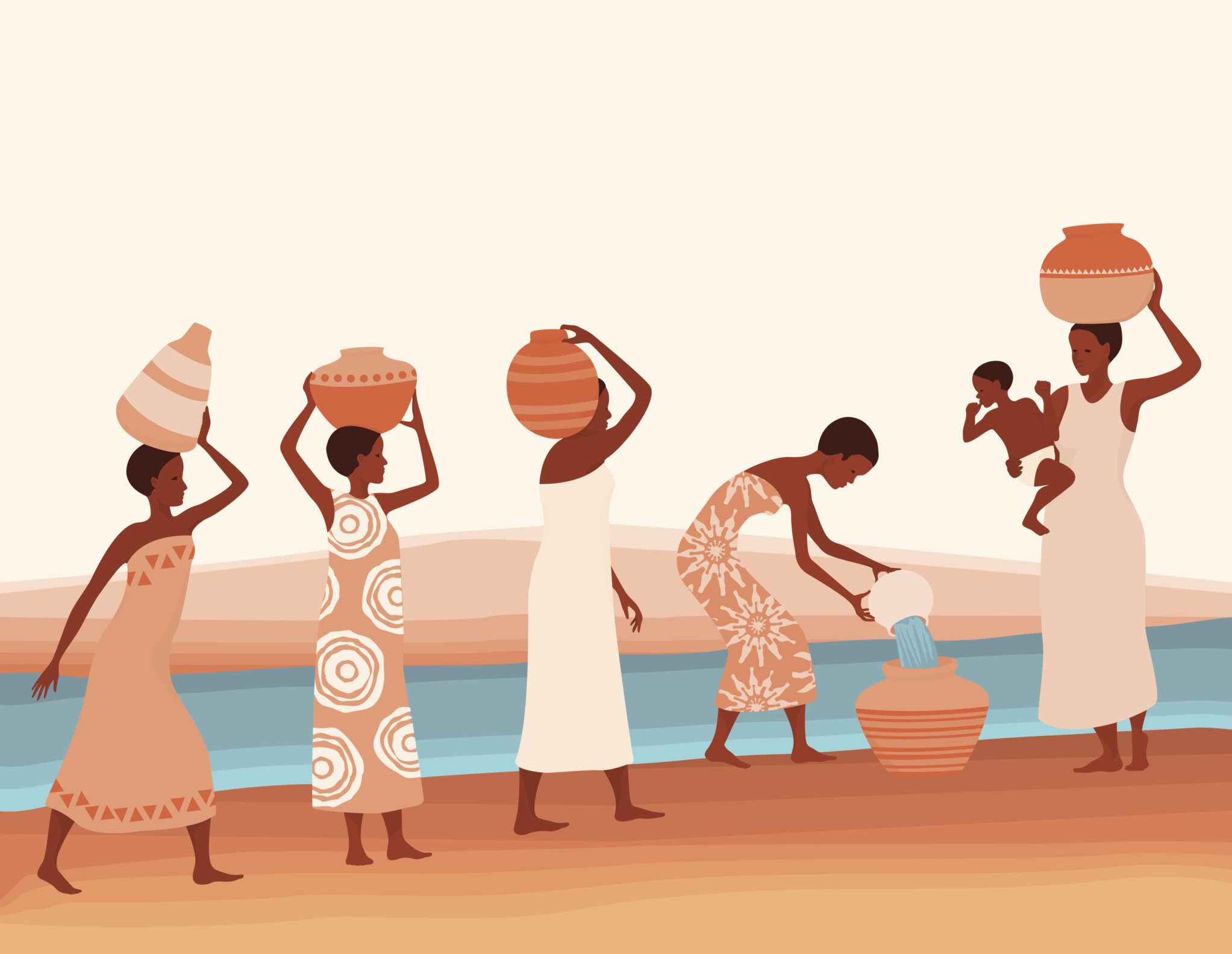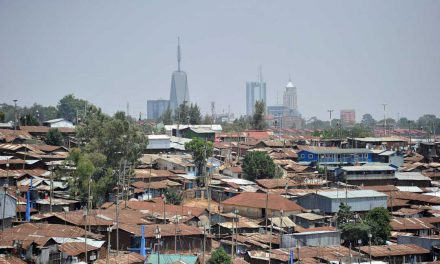The women behind Nigeria’s #BringBackOurGirls movement have spent four years defying police crackdowns to sustain their campaign and now they want the president’s job
Judging by their appearance, the women meeting at the Unity Fountain in Nigeria’s capital, Abuja, don’t look at all tough. Alongside their male colleagues, they stand calmly under a cloudy October evening sky to discuss the killing of another female aid worker by the Islamist militant group Boko Haram. A police team keeps watch nearby.
But behind this apparent serenity lies a story of perseverance. For more than four years, the Bring Back Our Girls group has met here daily, defying a police crackdown to campaign for the freedom of over 200 schoolgirls abducted by Boko Haram. Now, with over a hundred girls still missing, the founding leaders of the group are taking matters into their own hands: they are seeking political power.
The women, who have now resigned their positions from the group to refute allegations of bias, want President Muhammadu Buhari replaced by one of their own. They are mobilising Nigerians to queue behind the group’s pioneer leader, Oby Ezekwesili, a former education minister and World Bank vice president, in the 2019 presidential election. They say the move is the surest way to solve the Boko Haram crisis and other security and economic problems besetting the country.
“We know how dirty old-order politicians play. We are taking this step for the first time in our lives, of working actively for a candidate, because we think this is the only option we have to achieve our goals of securing lives and property,” one of the group’s leaders, Dudu Bakam, said in a statement announcing her resignation in early October 2018. “These politicians have shown they will not listen until their positions are at risk, and this is what we are going to do now.”
Nigeria’s upcoming poll will be significant for many reasons. First, after the historic defeat of an incumbent in 2015, it will be an assessment of the new government by an increasingly confident electorate who now believe their votes can sack a misbehaving administration. So far, President Buhari’s message of change seems yet to hold true – at least in terms of translating the country’s vast oil wealth into improved living standards. In June 2018, Nigeria overtook India as the nation with the largest number of extremely poor people, according to the World Poverty Clock and Washington-based Brookings Institution.
Also, except for last-minute changes, the incumbent will be facing a record number of challengers. By October 2018, 47 parties had submitted the names of their presidential candidates, according to AllAfrica.com. Six of the contestants are women – the highest number since the end of military rule in 1998. For a country still facing questions about gender equality, it is an important message. Nigeria currently has only five women in a 35-member cabinet, 20 women in a 469-member National Assembly, and five women on a Supreme Court panel of 15.
Ezekwesili, who is running on the platform of the Allied Congress Party of Nigeria, says her candidacy should not be seen through the gender prism. She is campaigning on the theme of good governance with a focus on the economy, living standards, knowledge capital and security. Still, Ezekwesili says she remains a voice for gender equality and deplores “gender subjugation all over the world”.
“It is against social justice for us to look away and to ignore the cries of women in any way. It is against social justice to pretend as if things are not wrong around us,” she said in October in a presentation in India, where she was nominated for the 2018 Mother Teresa Award for her work with the Bring Back Our Girls movement. “Let’s have it at the back of our mind, saying ‘I will diminish, if I diminish a girl-child. I’ll be disempowered if I disempower a girl-child’.”
Ezekwesili is entering the race highly recommended after holding key cabinet positions in the Obasanjo government. She co-founded Transparency International and was nominated for the 2018 Nobel peace prize for her anti-corruption work. But ahead of the election, the former solid-minerals minister is better known for her Bring Back Our Girls effort.
The group launched after Boko Haram abducted more than 200 girls from a school dormitory in Chibok, a remote community in Nigeria’s northeast Borno state on 14 April, 2014. In response to a lack of prompt government action, a social media campaign under the hashtag #BringBackOurGirls sparked global outrage and galvanised activists to push for the girls’ freedom. Ezekwesili, Bakam, Hadiza Usman (now head of Nigeria’s Ports Authority), Aisha Yesufu, Florence Ozor, and Maureen Kabrik teamed up under the #BringBackOurGirls banner and began daily marches and sit-outs in Abuja with themes like “Would you be silent if your daughter was missing?”.
The women – among them gender activists, business owners and former government officials – defied police harassment to press for action. The courts reversed protest bans by the authorities, allowing their activities to continue. The then Peoples Democratic Party administration accused the group of being sponsored by the opposition All Progressives Congress. When the protests continued after Buhari took office, his ruling APC government in turn accused the group of working for the now opposition PDP.
The group’s sustained campaign has won praise for helping to position the girls’ plight in the nation’s consciousness. Out of the 219 girls abducted, 107 have regained their freedom while 112 are still missing, Ezekwesili said. In addition to the Chibok girls still missing, the group now campaigns for the release of other abducted women, including Leah Sharibu, seized alongside her classmates from a school in Yobe state, and three female Red Cross workers kidnapped by the jihadists at a displaced persons camp in March 2018.
But its work hasn’t gone without criticism. In July 2018, the police said the group’s continued meetings constituted a “public nuisance” and barred them – but the sittings have continued, nonetheless. Also, after co-founder Usman in 2016 accepted the appointment as head of the country’s ports, a powerful position previously reserved for ruling party backers, critics pointed to the job as evidence Usman had used Bring Back Our Girls as a cover to work for the opposition. In a recent interview, Usman said that despite her obviously influential position she remained a part of the movement and was attending the regular sit-outs in Lagos, where her office is located.
“Everywhere I go, I carry my (Bring Back Our Girls) badge. So, I will not leave Bring Back Our Girls,” she said in an interview with BBC News Pidgin in September. “What is important is that we have to continue to raise our voice to talk about bringing the girls back.”
Ezekwesili’s presidential ambition has reignited allegations of partisanship, with critics saying the Bring Back Our Girls group is being used for political purposes. The group denies that claim.
“For us in BBOG, we have always been regime and politics neutral,” new coordinator Edith Yassin told Africa in Fact. “Our past leaders are still members of the group, anytime you see Hadiza, she is wearing her BBOG badge.”
To stifle such attacks, all four women resigned from the BBOG movement in early October 2018 to support Ezekwesili. The new team, led by Yassin, has continued with the daily sit-outs in Abuja and Lagos. But nearly a decade after the Boko Haram crisis began, the group’s violence against women shows no sign of abating. In September 2018, the terror group released a propaganda video of the execution of one the three Red Cross workers, claiming the government had failed to meet its terms. It killed the second aid worker a month later after another deadline passed.
Jacob Zenn, an adjunct professor on violent non-state actors in world politics at the Georgetown University security studies programme, said resolving the Boko Haram crisis would require more inclusion of women.
“Not only have women been targeted for genocide by Boko Haram, but their voices have often been marginalised when it comes to finding solutions to the insurgency — or at least put behind men’s voices,” Zenn, an analyst for the Jamestown Foundation, focusing on Nigeria and central Asia, said in an October 2018 for Premium Times, a Nigerian online newspaper.
Meanwhile, the Bring Back Our Girls group has no intention of scaling down their activities. “The sooner they bring the Chibok girls back the better,” Yassin said. “If we don’t stop when they bring back the girls, the Rann women, Leah Sharibu and others, then [our critics] can have something to say.”
Ini Ekott is the deputy managing editor at Premium Times, Nigeria. He has researched and written extensively on governance and leadership in Africa. He is a former Wole Soyinka investigative reporter of the year, and was a member of the global team of journalists that conducted the Pulitzer-winning Panama Papers reporting

